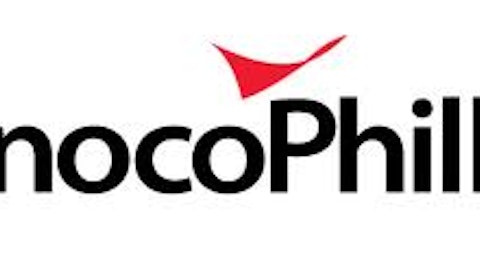While the pros, cons, and costs of Obamacare have received significant press over the last several months, the impact of the U.S. policy on natural gas exports could have an even more profound impact on the costs of day-to-day life than the health-care law. Goldman Sachs Group, Inc. (NYSE:GS) recently said that the conditional approval the U.S. Department of Energy granted to the Freeport LNG terminal in Texas is significant evidence that the push to allow the export of liquefied natural gas is gaining momentum. If the U.S. begins to export large quantities of LNG, while the price would reach global equilibrium — a benefit to natural gas companies — the push to shift to LNG as a primary energy source in the U.S. might be in jeopardy.
The significance of Texas
The Texas location is the second such terminal to receive conditional approval and would bring liquefaction capacity near the demanded capacity, according to Goldman’s Samantha Dart: “These recent developments support our view that at least 6.8 billion cubic feet a day of liquefaction of capacity will be built in the U.S.” Dart believes that demand capacity is roughly 7.7 billion cubic feet per day.

Investment implications
In May 2011, Cheniere Energy, Inc. (NYSEMKT:LNG) received conditional approval for its Sabine Pass LNG Terminal in Louisiana. The gathering momentum and shifting in government sentiment should be a positive catalyst for the stock as well, particularly if permanent approval is granted. Dow and ConocoPhillips (NYSE:COP) would each benefit as well, as would Chesapeake Energy Corporation (NYSE:CHK), the largest natural gas producer in the United States. Chesapeake Energy Corporation (NYSE:CHK) has suffered recently as a result of the supply glut from shale operations. If prices rise significantly, each of these companies is sure to benefit.
The cost to your bottom line
Since the shale boom began, Clean Energy Fuels Corp (NASDAQ:CLNE) has been among the companies championing clean energy solutions. In the case of Clean Energy Fuels Corp (NASDAQ:CLNE), the company is attempting to build what it calls America’s Natural Gas Highway. The initiative is designed to place LNG filling stations across the country on major trucking routes, thereby allowing more and more freight to move by LNG-powered truck. Railroads are considering similar options, and early talk of an LNG passenger vehicle has begun.
If the price of natural gas spikes, the economic viability of all of these projects will probably make them impossible to pursue seriously. This is not a simple matter of a failure for the environmental lobby; it will cost consumers in a variety of ways. If goods cost more to ship, the price increase will probably be passed along. In addition, the technological advances that may be lost are impossible to measure. Ultimately, the management of natural gas exporting is critical to the future of all consumers and should not be overlooked.
The article Is the Most Expensive Policy Since Obamacare Gaining Momentum? originally appeared on Fool.com and is written by Doug Ehrman.
Fool contributor Doug Ehrman has no position in any stocks mentioned. The Motley Fool recommends Clean Energy Fuels and Goldman Sachs and has options on Chesapeake Energy.
Copyright © 1995 – 2013 The Motley Fool, LLC. All rights reserved. The Motley Fool has a disclosure policy.

